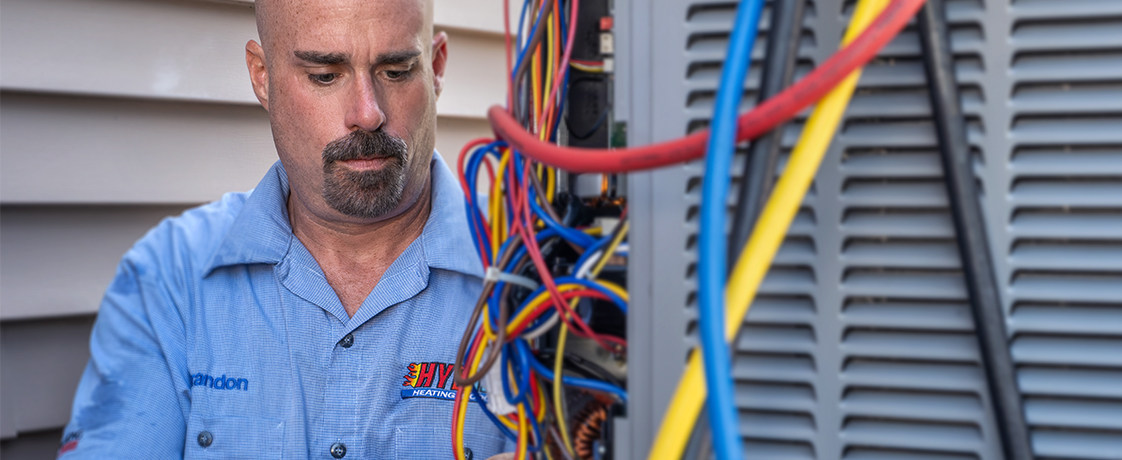- Home
- HVAC Basics
- Is It Time To Repair or Replace?
Is It Time To Repair or Replace?

If you’re like most people, you probably don’t think about your HVAC system until a problem arises, and at that point, it can be almost impossible to ignore. So what do you do?
Perhaps you’ve already called a repairman and been told your unit is in need of service. Now you’re looking at the estimate to fix it and wondering, should I repair my unit or replace it? It’s not always an easy decision to make. The Armstrong Air professionals have compiled these important considerations to help you through the process.
AGE OF YOUR SYSTEM
- The average life expectancy of an air conditioner or heat pump is 10–12 years.
- The average life expectancy of a furnace is 15–20 years.
- If your unit is nearing the average life expectancy, you’ll need to weigh the repair cost against the possibility that more repairs may be needed very soon, or even a complete replacement.
Consider the 50% rule: When the cost of repairs approaches 50% of the value of your heating or cooling system, it’s generally time to replace the system.
ENERGY EFFICIENCY
- Equipment that is approaching the end of its life expectancy will typically be much less energy efficient than today’s equipment. For example, compare 8–10 SEER on the cooling side, and 68% AFUE for a furnace to modern products that rate as high as 18 SEER and 95% AFUE and you’re looking at some substantial savings on your monthly energy bills when considering a new unit.
- Energy costs (gas, oil, electricity) have risen significantly in the last decade, and will likely continue to do so. Consider the energy consumption of your unit and your potential savings over its lifetime.
FINANCIAL INCENTIVES
- There are often financial incentives for upgrading to a new system, which can be an important factor in your decision.
- Search for incentives at www.dsireusa.org.
- Be sure to ask your independent Armstrong Air dealer what other incentives are currently available in your market.
HOME IMPROVEMENTS
If there have been upgrades made to your home that improve its insulation and energy efficiency (new windows, doors, insulation, roofing, sealing, etc.), then your current unit may actually be oversized or undersized for your needs.
- A smaller unit would cost less and use less energy to run.
- Conversely, your current unit may be too small and may be working harder and less efficiently than it should.
Research shows that water heating, and air conditioning and home heating account for more than 50% of domestic energy use.
ENVIRONMENTAL IMPACT
- Research shows that water heating, air conditioning and heating account for more than 50% of domestic energy use.* It’s good to know that modern equipment uses less energy and will reduce your carbon footprint.
- Newly manufactured air conditioning units have changed to R410a refrigerant, a much more environmentally friendly product than its predecessor, R22.
- Consider choosing ENERGY STAR® heating and cooling equipment to lower your energy footprint.
*U.S. Department of Energy Statistics
COMFORT
- Are you happy with your current system? Your old HVAC system can be responsible for things like air quality, noise, temperature swings, and hot or cold spots throughout the house.
- Over the last decade, modern systems have incorporated major advances in home comfort technology.
Find a professional near you.
